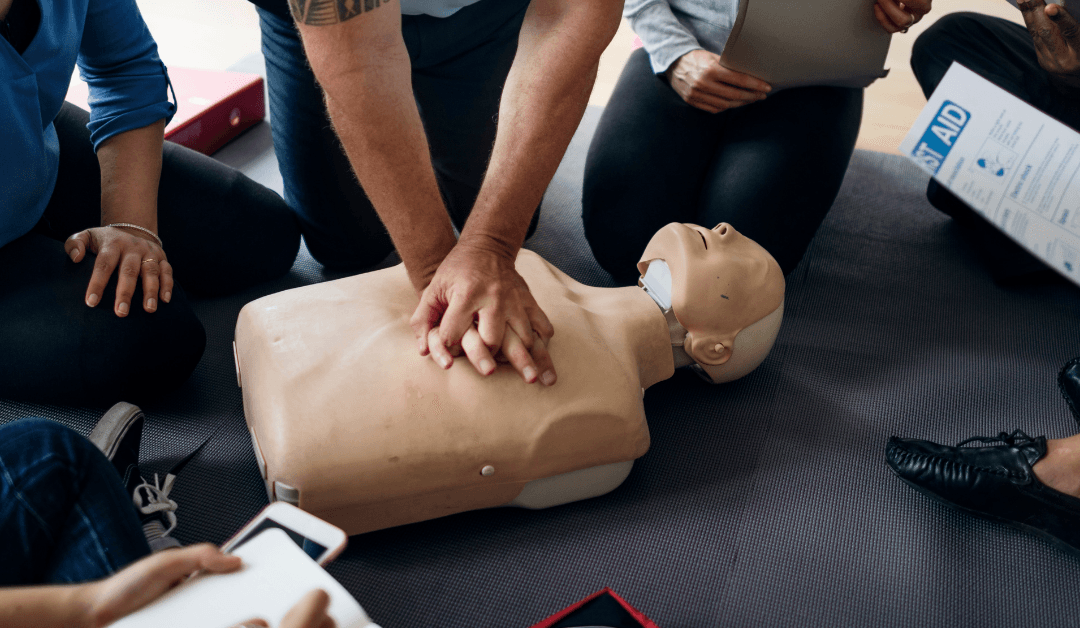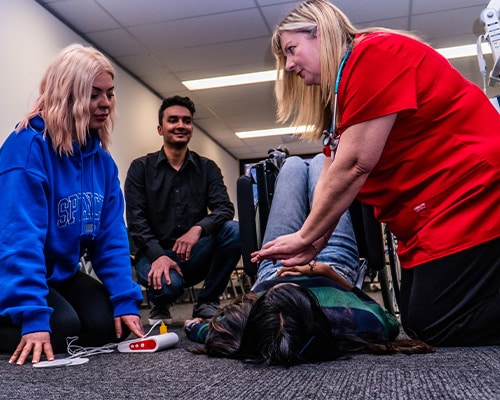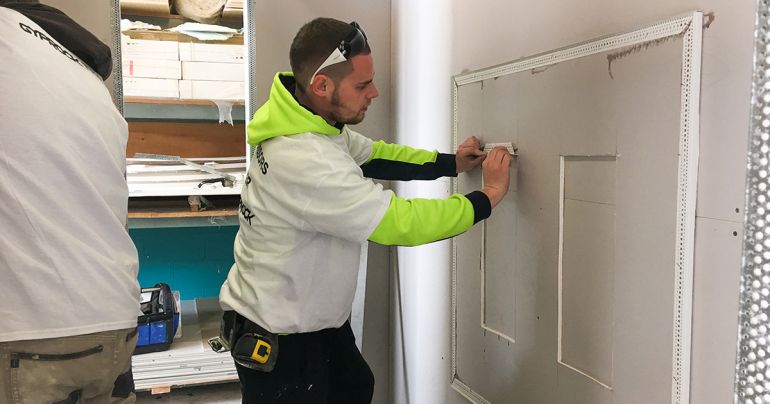
by admin | Nov 5, 2024 | blog
The Vital Role of Life Support Training
Introduction to Life Support Training
Life support training equips individuals with essential skills to provide immediate assistance in emergencies. Whether in a professional healthcare setting or everyday situations, having the knowledge and ability to perform life-saving techniques can significantly impact survival rates. This article delves into the vital role of life support training, its importance, and the skills it encompasses.
The Importance of Life Support Training
Saving Lives in Critical Situations
The primary objective of life support training is to save lives. When emergencies occur, such as cardiac arrest or severe injuries, timely intervention can make a crucial difference. Studies indicate that immediate application of cardiopulmonary resuscitation (CPR) can double or triple a victim’s chances of survival. Life support training prepares individuals to respond swiftly and effectively in these critical moments, bridging the gap until professional medical assistance arrives.
Empowering Individuals with Confidence
Life support training empowers individuals by providing them with the knowledge and skills necessary to act in emergencies. Many people feel helpless in crisis situations, often frozen by fear or uncertainty. Training boosts confidence, enabling individuals to take decisive action. This empowerment fosters a culture of responsibility, encouraging more people to participate in training programs and prepare for emergencies.
Creating Safer Communities
Communities with a higher percentage of trained individuals experience improved safety outcomes. When more people are equipped with life support skills, the collective response to emergencies becomes more effective. This shared knowledge creates a network of individuals ready to help, ultimately enhancing community resilience. Life support training is essential for workplaces, schools, and public spaces, ensuring that safety is a communal priority.
Key Components of Life Support Training
Cardiopulmonary Resuscitation (CPR)
CPR is one of the most critical components of life support training. This technique is essential for anyone witnessing a cardiac arrest. Participants learn how to perform chest compressions and rescue breaths effectively, understanding the science behind keeping blood and oxygen flowing to vital organs. The emphasis on hands-on practice ensures that individuals can perform CPR confidently in real-life scenarios.
Automated External Defibrillator (AED) Training
The use of Automated External Defibrillators (AEDs) is integral to life support training. AEDs are portable devices that can deliver an electric shock to the heart, potentially restoring a normal rhythm during cardiac arrest. Training includes instructions on how to operate an AED, ensuring individuals are familiar with the device’s use. Knowing how to locate and utilize an AED can greatly improve outcomes in emergencies.
First Aid Techniques
Life support training encompasses various first aid techniques to address a range of emergencies. Participants learn how to assess injuries, control bleeding, and treat other acute conditions. Skills such as wound care, managing burns, and recognizing signs of shock are critical in providing immediate care. First aid knowledge can stabilize a patient’s condition until advanced medical help arrives.

The Vital Role of Life Support Training
Addressing Common Misconceptions
Life Support Training is Only for Healthcare Professionals
A common misconception is that life support training is only necessary for healthcare professionals. However, life support skills are invaluable for anyone. Emergencies can occur in everyday settings, and having more individuals trained to respond can significantly improve survival rates. Training programs are designed to be accessible, ensuring that everyone, regardless of their background, can learn these vital skills.
It’s Too Complicated to Learn
Many individuals believe that life support techniques are too complex to master. However, training programs simplify these skills through practical demonstrations and hands-on practice. Participants are guided step-by-step through each technique, making the learning process manageable and effective. With ongoing practice, individuals can become proficient in life support skills, increasing their confidence in emergencies.
Case Studies Highlighting Impact
Numerous case studies demonstrate the positive impact of life support training on survival rates. For instance, a bystander who administers CPR within minutes of cardiac arrest can dramatically increase the victim’s chances of survival. In communities with robust life support training initiatives, the number of lives saved during emergencies has risen significantly. These real-life examples highlight the critical importance of equipping individuals with life support skills.
Workplace Safety Initiatives
Many organizations recognize the importance of life support training and implement it as part of their workplace safety initiatives. Training employees in CPR, AED usage, and first aid not only enhances safety but also fosters a culture of care and responsibility. Companies that prioritize life support training can create a safer work environment, reducing the risk of accidents and improving employee morale.
The Future of Life Support Training
Innovations in Training Methods
The field of life support training continues to evolve with advancements in technology. Online training modules, virtual simulations, and mobile applications make life support skills more accessible to a broader audience. These innovations allow individuals to learn at their own pace while still receiving practical experience during in-person sessions. Such developments ensure that life support training remains relevant and engaging.
Advocacy for Policy Changes
Advocacy for policies that mandate life support training in schools, public facilities, and workplaces is gaining traction. Policies that require life support training can ensure that a larger segment of the population is prepared to respond in emergencies. By prioritizing life support training at the policy level, communities can enhance overall safety and preparedness.
Conclusion
Life support training plays a vital role in saving lives and empowering individuals. The skills acquired through life support training equip people to respond effectively to emergencies, fostering a sense of responsibility and community. By addressing common misconceptions and emphasizing the importance of training, we can encourage more individuals to participate in these programs. Investing in life support training is a commitment to safety, readiness, and the value of human life. Ultimately, the goal is to create a society where everyone has the skills and confidence to act in emergencies, ensuring a safer future for all.

by admin | Nov 5, 2024 | blog
Why Emergency Life Support Matters
Introduction to Emergency Life Support
Emergency Life Support (ELS) refers to a set of essential skills and knowledge required to respond effectively to medical emergencies. This training is crucial for anyone, regardless of their profession or background, as emergencies can happen anytime and anywhere. Understanding why ELS matters can inspire individuals to learn these vital skills, ultimately leading to increased survival rates in critical situations.
Understanding the Scope of Emergency Life Support
What is Emergency Life Support?
Emergency Life Support encompasses various techniques and procedures designed to provide immediate assistance in emergencies. These can range from basic first aid to advanced resuscitation techniques, including cardiopulmonary resuscitation (CPR) and the use of automated external defibrillators (AEDs). ELS training equips individuals with the skills necessary to stabilize patients until professional medical help arrives.
Types of Emergencies Addressed in ELS Training
ELS training prepares individuals to handle a wide array of emergencies, including:
Cardiac Arrest: Understanding how to perform CPR and use an AED can be life-saving when someone experiences a cardiac event.
Choking Incidents: Learning how to assist someone who is choking is critical for preventing fatalities.
Trauma and Wounds: First aid skills for managing cuts, bruises, fractures, and severe bleeding are essential in providing immediate care.
Medical Emergencies: Recognizing and responding to conditions such as strokes, seizures, or allergic reactions are key components of ELS training.
The Importance of Emergency Life Support
Saving Lives
The most significant reason why ELS matters is its potential to save lives. When someone experiences a life-threatening event, every second counts. Immediate action can mean the difference between life and death. Studies show that effective CPR administered by a bystander can double or even triple a person’s chance of survival following cardiac arrest. The ability to perform ELS can drastically improve outcomes in critical situations.

Why Emergency Life Support Matters
Empowering Individuals and Communities
Emergency Life Support training empowers individuals with the knowledge and skills to respond effectively in emergencies. This empowerment fosters a sense of responsibility and confidence, enabling people to act rather than freeze in fear when faced with an emergency. Moreover, communities with a higher percentage of ELS-trained individuals exhibit greater resilience. With more trained responders available, communities can collectively enhance safety and preparedness.
Fostering a Culture of Preparedness
Investing in ELS training promotes a culture of preparedness. Organizations, schools, and communities that prioritize ELS training demonstrate a commitment to safety. This culture encourages individuals to be proactive about emergency preparedness, ensuring that people are not only equipped with the skills but also have the mindset to respond effectively during emergencies.
Key Skills Learned in Emergency Life Support Training
Cardiopulmonary Resuscitation (CPR)
CPR is perhaps the most well-known component of ELS training. Knowing how to perform CPR can significantly increase the chances of survival for someone experiencing cardiac arrest. ELS training emphasizes the importance of chest compressions and rescue breaths, teaching participants how to administer them effectively. Understanding the science behind CPR, including how it helps maintain blood flow and oxygenation, reinforces its significance in life-saving situations.
AEDs are crucial tools in the event of cardiac arrest. ELS training includes instructions on how to use an AED, providing step-by-step guidance on applying the pads and delivering shocks if necessary. Familiarity with AEDs and knowing where to locate them in public spaces can greatly improve survival rates during emergencies.
First Aid Techniques
First aid is a vital aspect of ELS training that covers various emergency scenarios. Participants learn how to assess injuries, control bleeding, and manage other acute conditions. Skills such as bandaging wounds, treating burns, and performing the Heimlich maneuver are fundamental components of first aid training. Knowing how to provide basic care can stabilize a person’s condition until professional help arrives.
Addressing Common Misconceptions
Emergency Life Support is Only for Healthcare Professionals
One common misconception is that ELS training is only relevant for healthcare professionals. In reality, anyone can benefit from learning these skills. Emergencies do not discriminate; they can occur in homes, schools, workplaces, and public spaces. Having a broader base of trained individuals increases the likelihood of a timely response, regardless of the setting.
It’s Too Complicated to Learn
Many people believe that ELS skills are too complicated to master. However, ELS training programs are designed to be accessible to everyone. With practical, hands-on training and simplified instructions, individuals can quickly learn the key skills necessary for effective emergency response. The more people engage in training, the more comfortable they become with these essential techniques.
Real-Life Impact of Emergency Life Support Training
Case Studies and Statistics
Numerous studies demonstrate the positive impact of ELS training on survival rates during emergencies. For example, a study published in the Journal of the American Medical Association found that bystander CPR significantly increased survival rates for cardiac arrest victims. Furthermore, organizations that implement regular ELS training for employees often report improved safety outcomes and greater confidence in handling emergencies.
Community Initiatives and Programs
Many communities have embraced ELS training as part of their public safety initiatives. Programs that offer free or low-cost ELS courses in schools, workplaces, and community centers foster greater awareness and skill development. These initiatives help create a network of individuals ready to respond in emergencies, ultimately leading to safer environments for everyone.
The Future of Emergency Life Support Training
Innovations in Training Methods
The landscape of ELS training continues to evolve with advancements in technology. Online training modules, mobile applications, and virtual simulations are becoming increasingly popular, making ELS skills more accessible. These innovations allow individuals to learn at their own pace while still receiving hands-on experience during in-person sessions.
Advocacy for Policy Changes
Advocacy for policies that require ELS training in schools, workplaces, and public facilities is gaining momentum. Such policies can ensure that more individuals have the opportunity to learn these essential skills, creating a safer society overall. By prioritizing ELS training at a policy level, communities can significantly improve emergency preparedness.
Conclusion
Emergency Life Support training is crucial for anyone looking to make a positive impact in emergency situations. The skills learned during ELS courses can save lives, empower individuals, and foster a culture of preparedness. By understanding the importance of ELS, we can encourage more people to participate in training, ultimately leading to a safer and more resilient society. Investing time in learning these essential skills is a commitment to yourself, your community, and the value of human life. Reach out to us here.

by admin | Nov 4, 2024 | blog
Key Skills from Emergency Life Support Training
Introduction to Emergency Life Support Skills
Emergency Life Support (ELS) training equips individuals with essential skills to respond effectively in critical situations. Whether it’s a medical emergency, an accident, or a natural disaster, the ability to provide immediate care can save lives. This article delves into the key skills taught in ELS training, highlighting their importance and practical applications.
Understanding CPR: The Cornerstone of ELS
What is CPR?
Cardiopulmonary resuscitation (CPR) is a lifesaving technique used when someone’s breathing or heartbeat has stopped. It involves a combination of chest compressions and rescue breaths to maintain blood circulation and oxygenation to vital organs. CPR is a fundamental skill in ELS training, and mastering it can significantly increase the chances of survival for cardiac arrest victims.
Steps to Perform CPR
The steps for performing CPR can be broken down into the following components:
Assess the Situation: Ensure the scene is safe, then check the person for responsiveness by gently shaking their shoulders and shouting, “Are you okay?”
Call for Help: If the person is unresponsive, call emergency services immediately or ask someone else to do so.
Open the Airway: Tilt the person’s head back slightly and lift their chin to open the airway.
Check for Breathing: Look, listen, and feel for normal breathing for no more than 10 seconds. If the person is not breathing or only gasping, begin CPR.
Perform Chest Compressions: Place the heel of one hand on the center of the chest, interlock your fingers, and compress downwards hard and fast (about 2 inches deep at a rate of 100 to 120 compressions per minute).
Provide Rescue Breaths: After every 30 compressions, give 2 rescue breaths by sealing your lips around the person’s mouth and breathing into their lungs.
Continue CPR: Repeat cycles of 30 chest compressions followed by 2 rescue breaths until emergency help arrives or the person shows signs of life.
Importance of CPR Training
CPR training is critical for everyone, not just healthcare professionals. Knowing how to perform CPR can empower bystanders to take immediate action, potentially doubling or tripling a victim’s chance of survival in cases of cardiac arrest. The more people trained in CPR, the greater the chances of saving lives in emergencies.
Utilizing an Automated External Defibrillator (AED)
What is an AED?
An Automated External Defibrillator (AED) is a portable device that delivers a shock to the heart when someone is experiencing sudden cardiac arrest. The device analyzes the heart’s rhythm and determines whether a shock is needed, providing voice prompts to guide the user through the process.

Key Skills from Emergency Life Support Training
Steps to Use an AED
Using an AED involves the following steps:
Turn on the AED: Follow the visual or auditory prompts.
Expose the Chest: Remove clothing and wipe the chest dry to ensure proper pad adhesion.
Attach Pads: Place the pads on the person’s bare chest as indicated on the pads (one pad on the upper right chest and the other on the lower left side).
Stand Clear: Ensure no one is touching the person while the AED analyzes the heart rhythm.
Deliver Shock if Advised: If the AED advises a shock, press the button to deliver it.
Continue CPR: After delivering the shock, resume CPR immediately, starting with chest compressions.
The Role of AEDs in Emergency Situations
AEDs are essential tools in emergency life support. Their availability in public spaces increases the likelihood of survival for cardiac arrest victims. ELS training includes instructions on how to use AEDs effectively, emphasizing the importance of acting quickly and confidently in emergencies.
First Aid Basics: A Critical Component of ELS
What is First Aid?
First aid refers to the initial assistance provided to a person suffering from an injury or illness before professional medical help arrives. It encompasses a range of techniques aimed at stabilizing the individual’s condition and preventing further harm.
Key First Aid Skills
Several critical first aid skills are covered in ELS training, including:
Wound Management: Learning to clean and dress wounds properly, control bleeding, and recognize signs of infection.
Choking Relief: Understanding how to assist someone who is choking, including performing the Heimlich maneuver for adults and modified techniques for infants.
Burn Treatment: Knowing how to assess the severity of burns and provide appropriate care, such as cooling the burn with running water and covering it with a sterile dressing.
Recognizing and Responding to Shock: Identifying the signs of shock (e.g., pale skin, rapid heartbeat) and knowing how to position the person and keep them warm while awaiting emergency services.
Why First Aid Skills are Essential
First aid skills are invaluable in everyday life. Knowing how to respond to common injuries and medical emergencies can make a significant difference in outcomes. ELS training empowers individuals with the knowledge to act quickly and effectively, potentially preventing complications and saving lives. For us at AIMS institute here.
Recognizing Medical Emergencies
Identifying Signs and Symptoms
A critical aspect of ELS training is recognizing the signs of various medical emergencies. Understanding the symptoms can lead to timely interventions and potentially life-saving measures.
Heart Attack: Symptoms may include chest pain, shortness of breath, nausea, and pain radiating to the arm or jaw.
Stroke: The FAST method (Face drooping, Arm weakness, Speech difficulties, Time to call emergency services) is a simple way to remember the signs of a stroke.
Allergic Reactions: Recognizing symptoms such as swelling, hives, difficulty breathing, or anaphylaxis, which requires immediate administration of epinephrine.
Responding to Medical Emergencies
Responding effectively to medical emergencies involves several key actions:
Call for Help: Always prioritize calling emergency services in the event of a medical emergency.
Provide Comfort: Keep the person calm and comfortable while waiting for help, and reassure them that assistance is on the way.
Gather Information: If possible, gather information about the person’s medical history, allergies, and medications to relay to emergency responders.
Benefits of Emergency Life Support Training
Empowerment and Confidence
One of the most significant benefits of ELS training is the empowerment it provides. Individuals who complete ELS courses often report feeling more confident in their ability to respond to emergencies. This confidence can translate into a proactive approach to safety in everyday life.
Improved Community Resilience
A community trained in emergency life support is more resilient in the face of crises. With more people equipped to handle emergencies, communities can respond effectively and reduce the impact of incidents on public health and safety.
Career Opportunities
For those in healthcare, education, and various public service roles, ELS training is often a requirement. Having these skills can enhance career prospects and is a valuable asset in any professional environment.
Conclusion
Emergency Life Support training provides individuals with critical skills that can save lives in emergencies. From mastering CPR and using AEDs to applying first aid and recognizing medical emergencies, the knowledge gained through ELS courses is invaluable. By equipping ourselves and our communities with these essential skills, we can make a significant difference in the outcomes of critical situations, ultimately fostering a safer environment for everyone.

by admin | Nov 4, 2024 | blog
Introduction to Emergency Life Support
Understanding Emergency Life Support
Emergency Life Support (ELS) refers to a set of critical techniques and procedures that are used to preserve life in emergency situations, such as cardiac arrest, choking, and severe injuries. ELS encompasses various life-saving methods, including cardiopulmonary resuscitation (CPR), first aid, and automated external defibrillator (AED) usage. These skills are essential for anyone, as emergencies can occur at any time and in any place.
The primary goal of ELS is to stabilize a person’s condition until professional medical help arrives. By providing immediate assistance, individuals trained in ELS can significantly improve a victim’s chances of survival and recovery. This article explores the importance of emergency life support training, the core skills taught, and the benefits of acquiring these life-saving techniques.
The Importance of Emergency Life Support Training
Saving Lives
One of the most compelling reasons for individuals to pursue ELS training is the potential to save lives. According to the American Heart Association, effective CPR can double or triple a victim’s chances of survival after cardiac arrest. Knowing how to act quickly and confidently in emergencies can make a significant difference in critical situations.
Promoting Community Safety
Emergency Life Support training not only empowers individuals but also promotes safety within communities. When more people are trained in life-saving techniques, the likelihood of timely intervention during emergencies increases. This collective knowledge fosters a culture of preparedness, where individuals are more vigilant and equipped to handle crises.
Enhancing Personal Confidence
Participating in ELS training can enhance personal confidence. Knowing that you possess the skills to respond to emergencies can alleviate feelings of helplessness during a crisis. Training provides participants with practical experience, enabling them to react effectively and calmly when faced with an emergency.

Introduction to Emergency Life Support
Core Components of Emergency Life Support Training
Cardiopulmonary Resuscitation (CPR)
CPR is one of the most critical components of emergency life support. It involves a combination of chest compressions and rescue breaths designed to maintain blood flow and oxygenation to vital organs when a person’s heartbeat and breathing have stopped.
Training typically covers the following aspects of CPR:
Recognizing Cardiac Arrest: Understanding the signs of cardiac arrest and when to initiate CPR is essential. Common indicators include unresponsiveness and lack of normal breathing.
Performing Chest Compressions: Effective chest compressions should be firm and fast, at a rate of 100 to 120 compressions per minute. Proper technique involves placing hands on the center of the chest and compressing to a depth of about two inches.
Rescue Breaths: If trained to do so, responders will also provide rescue breaths after every 30 compressions, using a barrier device if available to minimize risk.
Automated External Defibrillator (AED) Usage
An AED is a portable device that can analyze the heart’s rhythm and deliver an electric shock, if necessary, to restore a normal heartbeat. Training in AED usage is typically included in ELS courses:
Understanding AED Functions: ELS training covers how to turn on the device, attach the pads to the victim’s chest, and follow the device’s voice prompts.
Timing of Use: Using an AED as soon as possible is crucial for improving survival rates in cases of sudden cardiac arrest. Training helps participants recognize when to utilize an AED effectively.
First aid skills are integral to ELS training, providing immediate care for various injuries and medical emergencies. Training often includes:
Wound Management: Learning how to clean and dress wounds, control bleeding, and recognize signs of infection.
Choking Relief: Techniques for helping someone who is choking, such as the Heimlich maneuver for adults and modified approaches for infants and children.
Recognizing Medical Emergencies: Identifying signs and symptoms of common medical emergencies, such as stroke (using the FAST method) and allergic reactions.
Basic Life Support (BLS)
Basic Life Support (BLS) courses are designed for healthcare professionals and laypeople alike. These courses focus on essential CPR techniques, AED usage, and basic first aid skills. BLS certification is often a requirement for various jobs in healthcare and emergency services.
Advanced Cardiac Life Support (ACLS) is aimed at healthcare providers who respond to cardiovascular emergencies. This course builds upon BLS training and includes advanced interventions, such as medication administration and advanced airway management.
Pediatric Advanced Life Support (PALS)
Pediatric Advanced Life Support (PALS) is specialized training for responding to emergencies involving infants and children. This course covers pediatric assessment, recognizing severe illnesses in children, and providing effective resuscitation techniques tailored to younger patients.
Where to Obtain Emergency Life Support Training
Emergency Life Support training is widely available through various organizations, including:
American Red Cross: Offers a range of ELS courses, including CPR, first aid, and AED training. Classes are available online and in-person.
American Heart Association: Provides training for BLS, ACLS, and PALS, focusing on the latest evidence-based guidelines.
Community Colleges and Hospitals: Many community colleges and local hospitals offer ELS training programs tailored to different audiences, including healthcare professionals and the general public.
Online Courses: Numerous online platforms provide ELS training, allowing participants to learn at their own pace. However, practical skills practice is essential, so a blended approach with in-person training is often recommended.
Conclusion
Emergency Life Support training is a vital resource for individuals seeking to prepare for unexpected emergencies. By equipping people with the knowledge and skills to respond effectively, ELS training empowers communities, saves lives, and enhances personal confidence. Whether through CPR, AED usage, or basic first aid, the skills learned in these courses can have a profound impact. Everyone should consider enrolling in an ELS course to ensure they are prepared to act in times of crisis, contributing to a safer environment for all. Investing time in learning these essential life-saving techniques could make all the difference in an emergency.

by admin | Oct 4, 2024 | blog
Introduction
In Australia, workplace safety is paramount, particularly in the construction industry, where workers are often exposed to various hazards. The White Card Course, or Construction Induction Training, plays a critical role in promoting safety and health standards across construction sites. This certification is mandatory for anyone wishing to work in construction and ensures that workers are equipped with the necessary knowledge and skills to identify hazards, assess risks, and implement safety measures. This article explores how the White Card Course effectively ensures safety within the construction industry.
The Foundation of the White Card Course
1. Overview of the White Card Course
The White Card Course is a nationally recognized training program that covers essential safety information required for construction workers. This course is designed to educate participants about their rights and responsibilities regarding workplace safety and to ensure compliance with the Work Health and Safety (WHS) Act. Upon completion, participants receive a White Card, which is proof of their understanding of safety protocols and procedures.
2. Legal Requirements
Under the WHS legislation, all construction workers must complete the White Card Course before they can legally work on construction sites. This requirement ensures that everyone entering a construction site possesses a fundamental understanding of safety regulations and practices. By mandating this training, regulatory bodies aim to minimize accidents and injuries, ultimately fostering a safer work environment.
Key Safety Topics Covered in the Course
1. Work Health and Safety Legislation
Understanding the legal framework surrounding workplace safety is a vital component of the White Card Course. Participants learn about the WHS Act, the roles of various stakeholders, and the responsibilities of employers and employees in maintaining a safe work environment. This knowledge empowers workers to advocate for their safety rights and encourages a culture of accountability on construction sites. Whether you’re aiming to work on large commercial projects or residential developments like display homes, having a White Card is an essential first step.
2. Hazard Identification and Risk Assessment
One of the primary focuses of the White Card Course is hazard identification and risk assessment. Participants are taught to recognize potential hazards on construction sites, such as:
Physical Hazards: These include machinery, tools, scaffolding, and uneven surfaces.
Chemical Hazards: Participants learn about the safe handling of hazardous substances, including chemicals and solvents.
Biological Hazards: Awareness of potential exposure to infectious diseases or mold is also addressed.
By teaching workers to identify these hazards, the course helps them understand how to assess the associated risks and implement control measures to mitigate them. This proactive approach to safety is essential in preventing accidents and injuries.
3. Safe Work Practices
The White Card Course emphasizes the importance of safe work practices. Participants learn about:
Personal Protective Equipment (PPE): The course covers the types of PPE required on construction sites, such as helmets, gloves, safety glasses, and high-visibility clothing. Understanding how to properly use and maintain PPE is crucial for personal safety.
Safe Use of Tools and Machinery: Workers receive training on the correct and safe operation of tools and machinery, including forklifts, scaffolding, and power tools. This training minimizes the risk of accidents caused by improper usage.
Manual Handling Techniques: Participants are educated on proper lifting techniques and ergonomics to prevent injuries related to manual handling, such as strains and sprains.
By instilling safe work practices, the White Card Course equips workers with the skills needed to perform their jobs safely and efficiently.

How the White Card Course Ensures Safety
4. Emergency Procedures
Preparedness for emergencies is a critical aspect of workplace safety. The White Card Course teaches participants how to respond to various emergencies, including:
Fire Emergencies: Understanding fire safety protocols, including evacuation procedures and the use of fire extinguishers.
Medical Emergencies: Recognizing medical emergencies and knowing how to provide basic first aid or seek help when needed.
Site Evacuations: Learning evacuation routes and procedures to ensure a safe and orderly exit during emergencies.
By providing this training, the White Card Course ensures that workers are ready to respond effectively to emergencies, minimizing potential harm to themselves and their colleagues.
1. Building a Safety Culture
The White Card Course fosters a culture of safety within the construction industry. By training workers to prioritize safety and understand their roles in maintaining a safe work environment, the course encourages a collective commitment to safety practices. This culture helps reduce the number of accidents and injuries on construction sites.
2. Enhancing Communication Skills
Effective communication is essential for ensuring safety on construction sites. The White Card Course teaches participants how to communicate hazards and safety protocols clearly. This includes reporting unsafe conditions, discussing safety measures with colleagues, and participating in safety meetings. Improved communication fosters a safer work environment by ensuring that everyone is informed and aware of potential risks.
3. Encouraging Continuous Learning
The construction industry is constantly evolving, with new technologies, techniques, and regulations emerging regularly. The White Card Course promotes continuous learning by emphasizing the importance of staying updated on safety practices and regulations. Participants are encouraged to refresh their knowledge periodically, ensuring they remain informed about the latest safety standards and practices.
Conclusion
The White Card Course is a vital component of workplace safety in the Australian construction industry. By providing comprehensive training on safety legislation, hazard identification, risk assessment, safe work practices, and emergency procedures, the course equips workers with the knowledge and skills necessary to create a safe working environment.
With the mandatory requirement for all construction workers to complete the White Card Course, the industry is better positioned to minimize accidents and injuries. By fostering a culture of safety, enhancing communication skills, and encouraging continuous learning, the White Card Course ultimately contributes to the well-being of all workers in the construction sector.
Whether you are just starting your career in construction or are an experienced worker looking to refresh your skills, completing the White Card Course is a crucial step towards ensuring your safety and that of your colleagues. Embrace the opportunity to learn, grow, and contribute to a safer construction industry in Australia.










